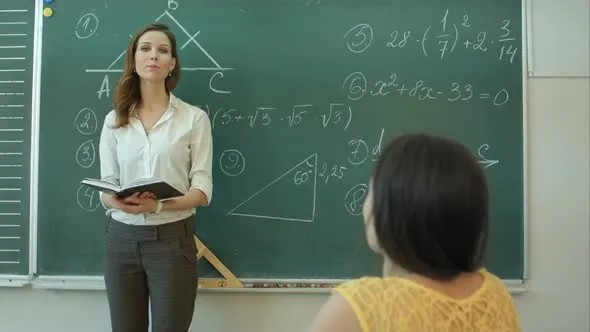Rosenshine principles asking questions

Rosenshine principles asking questions
Welcome to the world of Rosenshine's principles, where questions unlock paths to understanding. As a prospective teacher, let me guide you through the significance of effective questioning according to these bold principles. Embrace the joy of your chosen profession as we delve into the captivating world of Rosenshine principles emphasis on asking questions.
The concept of questioning forms the essence of best practice teaching. Effective questioning holds the power to illuminate, intrigue, and instigate thought processes. Barak Rosenshine, an applauded educational psychologist, bought forth ten principles of instruction. Chief among the principles, effective questioning, stands out as a crucial element in best practice teaching.
Imagine a classroom buzzing with curiosity. You, as teacher, launch a question into this lively mix, and suddenly the room becomes a vibrant arena of ideas, perceptions, and explanations. Effective questioning sparks this dynamic dialogue, creating an environment where every student feels engaged and involved.
But the process of questioning has deeper implications - it is not simply for eliciting correct answers. Rather, it is a tool to gauge a student's understanding, making it essentially an inclusive process central to Rosenshine principles methodology.
Rosenshine principles asking questions - art and science of teaching
Being a teacher, you are both an artist and a scientist, molding young minds while adhering to the science of learning. The art of effective questioning sequences finds its roots in the Rosenshine principles, combining the beauty of interaction with the precision of pedagogy.
As you stand at the helm of the class, your questions serve as a compass, guiding students through uncharted territories of knowledge. This calls for a predictable routine, mapped by you, which enables you to gauge your students' depth of understanding, identify areas that require a more intense focus and modified levels of instruction.
Rosenshine emphasised that the dynamic asking of a large number of questions is critical to student outcomes. This really isn't about firing off question after question, but is focused on creating a sequenced pathway of inquiry that both permits and empowers you and your students explore a particular topic or concept together.

Visualize yourself presenting a topic to your students through effective questioning. As your students' understanding deepens, note their responses as they evolve from short, tentative answers to confident, comprehensive explanations. This change in dynamics is fostered by Rosenshine's concept of asking students to explain their responses in a controlled way, facilitated by you.
Gaining insights into your students’ thought processes can actually broaden your view of their level of understanding and can us guide your instructional decisions. Whether it's a simple concept recap or diving headfirst into a new and complex idea, effective questioning paves the way and is the foundation to all that follows.
Every question is designed to elicit a specific response, every response strives to create a safe learning environment where students feel involved, engaged, and equipped to handle any concept with ease. The essence of Rosenshine principles - to ask effective questions - is all about creating this secure arena for learning. This dynamic means of questioning becomes critically important to engage students who may have learning difficulties or have a history of academic failure.
Rosenshine principles asking questions - importance of feedback
Never underestimate the power of accurate and supportive feedback. As an essential part of Rosenshine's principles to do with asking questions, feedback guides students' learning journey. Feedback doesn't just point out discrepancies in understanding, but also channels and scaffolds students toward the correct answer, bolstering their knowledge.
Keep in mind that Rosenshine's principles are not a strict blueprint, but a guiding light to effective pedagogy. They can adapt to the rhythm of your classroom, the pulse of your students' needs, and the tempo of your teaching style.
When you ask a question, you're not just sparking curiosity, but awakening thinking. It is this active engagement in the learning process, this inclusive process, that encapsulates the essence of Rosenshine principles and emphasis on asking effective question sequences.

As a characteristic of best practice teaching, repetitive and consistent asking of questions encourages students to become active learners. And when they begin to question their own understanding and explore solutions, you've instilled the practice of self-directed learning.
It is important to remember that questioning as a tool in the learning process should be anything but monotonous. It encompasses different question types, from probing questions to outcome-oriented questions, giving students ample opportunities to express their knowledge in different ways.
The questioning process ultimately manifests itself in teacher competence, wisdom, and understanding. It showcases your readiness to adapt to student responses, spontaneously modify your approach, and create a productive environment for learning.
Effective question sequences can serve as a timeline for the learning journey, delineating the path students take from understanding the basics to mastering complex concepts. An effectively conceived question sequence, then, enriches their engagement, deepens their understanding, and maintains their curiosity.
Rosenshine principles asking questions - connections
There's something magical about effective questioning. It creates a ripple effect, transmitting the energy of curiosity, action, and innovative learning in the classroom. In this setting, students genuinely connect with the material, embracing it not just academically, but personally.
By adopting Rosenshine principles asking questions sequence, you're not just delivering instruction, but dialoguing with your students. You're engaging them with the content, resonating with their perspectives, and facilitating their path to understanding and knowledge mastery.
In the grand scheme of teaching, questioning promotes a sense of community in the classroom. It’s a continual exchange of knowledge, ideas, and understanding, embodying democratic, respectful dialogues that encourage students to express their views openly.
Remember, asking effective questions is not about "right" or "wrong" answers. It's about patience, guidance, and creating opportunities for making sense of knowledge. It's where students find the confidence to voice their thoughts and clarify their doubts.
Creating effective question sequences, as highlighted in the Rosenshine principles, requires strategic planning. As a teacher adhering to this principle, your aim is to weave together a series of questions that push for deeper understanding and encourage critical thinking.
Adherence to effective questioning sequences aligns your classroom space to seek higher levels of discourse. Well thought out questions moves beyond factual recall, leading students towards developing their analytical skills, problem-solving abilities, and creating independent thinkers and learners.

The vitality of questioning as a fundamental tool of learning has existed for centuries and was a favourite topic of ancient Greek philosophers. With Rosenshine principles, teachers are well-equipped with effective questioning strategies, contributing to the persuasive shaping of young lives and their own impact on future generations.
So, all teachers who read this content, remember this as you step into the wonderful world of science of learning teaching methods – every question matters. Well designed and delivered questions lights the path of understanding and empowers your students to be active participants in their own learning journey.
We commend your determination for prioritizing and mastering the art of effective questioning. You are not just teaching facts, you are carving the path of understanding, creating future thinkers and lifelong learners.
As we conclude our exploration of Rosenshine principles method of asking questions, let us remember that great teachers are always great learners. Keep asking, keep learning, and remember, every question is a step towards creating a future of bright, eager learners, ready to change the world. Welcome to this beautiful journey of teaching adhering to the science of learning. It's going to be a heck of a ride, and trust me, it's an adventure worth embarking on!
References:
Whittington, T. (2019) Rosenshine Principles in Action, John Catt Publications LTD
09/2023
